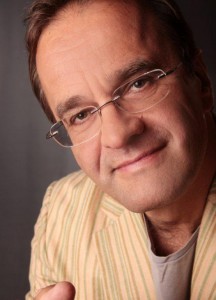 From 27 – 29 April 2011, the second conference of LINC (LEADER Inspired Network Community) took place in Bad Schandau (Sachsen, Germany). At the LINC conference, representatives of Local Action Groups (LAGs), stakeholders in rural development and for the first time also representatives from the European Network for Rural Development and the European Commission were present in this vibrant cooperation and networking event.
From 27 – 29 April 2011, the second conference of LINC (LEADER Inspired Network Community) took place in Bad Schandau (Sachsen, Germany). At the LINC conference, representatives of Local Action Groups (LAGs), stakeholders in rural development and for the first time also representatives from the European Network for Rural Development and the European Commission were present in this vibrant cooperation and networking event.
ARC Core Group member Robert Lukesch (ÖAR Regional Consulting, Austria) attended the conference and summarised for us the main ideas of the European Commission’s plans for the future LEADER programme which were presented by Rob Peters, Head of the European Commission’s Unit “European Network for Rural Development and Monitoring of Rural Development”. The Commission expects initiatives and projects at sub-regional level to be crucial in achieving smart, sustainable and inclusive growth.
The relevant legislative proposal is expected to be adopted by the Commission in autumn 2011 along with all other CAP post 2013 proposals. In this framework, LEADER is considered to become the main development instrument at sub-regional level and the Commission even plans to grant EU priority status to sub-regional development.
The Commission’s plans for the next programming period 2014-2020 include the following key proposals:
- Shared strategic framework and management of different EU funds at Commission and Member States’ level, including a strategic framework and guidelines for sub-regional and local development. (On this topic, read also Michael Dower’s recent assessment of Rural development and the linking of EU Funds).
- More, but not too prescriptive, guidance to EU member states for the effective implementation of LEADER. Member states will have to choose areas eligible for LEADER. There will be a lead fund for every local action group (these can be four: ESF, ERDF, EFF, EAFRD). The financial base will be broadened.
- Requirement for local action groups and programme administrations to show consideration for all eight LEADER specificities (Decentralised decision-making, area-based approach, bottom-up approach, the local group {=partnership approach}, innovation, multi-sectoral integration, networking, trans-national co-operation) in local development strategies and in the working mode of the local partnership.
- More flexibility and orientation towards innovation and local governance. Local Development Strategies will be the main tool to meet these objectives at sub-regional level.
- Increased operational freedom for Local Action Groups (LAGs). This should be ensured by a clearer distribution of tasks between managing authorities and LAGs, with more private sector participation and various forms of public–private partnerships.
- More funds for animation and capacity building (also to set up a local development strategies, i.e. in the run-up time).
- Strengthening transnational co-operation across Europe via reinforced networking tools at EU and Member States‘ level.
- Strengthening of rural-urban links.
The Commission expects that not all components of its ambitious plans will be unanimously supported by the Member States and therefore calls for vital support from rural development and LEADER stakeholders to carry the proposals through the negotiations of the upcoming legislative process.
Robert Lukesch is a member of the ARC Core Group.
He was born 1955 in Vienna, studied agro-economics, sociology and political science in Vienna. He is living on a small farm in Eastern Styria. Since 1984 his professional life extends over local and regional development, development co-operation and organizational development. Working for the consultancy firm ÖAR Regionalberatung GmbH since 1989, he became associate partner in 1997. His scope of activities includes designing and facilitating decision-making processes, strategy and management consultancy, shaping and evaluation of European rural development and Structural Funds programmes, policy advice, team development and leadership coaching. He is co-founder of the European network CURE (Convention for Urban and Rural Sustainability in Europe) and has contributed to the Kraków Declaration on a Sustainable Future for Europe and the World (May 2010).


